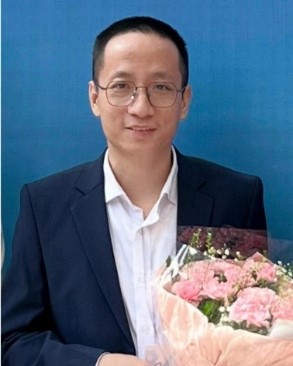—— Special Sessions ——
Special session proposals should include the title, aim and scope (including a list of main topics), and the names of the organizers of the special session, together with a short biography of all organizers. A list of potential contributors will be helpful.
Special session proposals will be evaluated based on the timeliness, uniqueness of the topic and qualifications of the proposers. The proposers are expected to have a PhD degree and have a good publication track record in the proposed area. After review, a decision on whether the proposal will be accepted will be sent to the proposers within two weeks after receipt of the proposals. Accepted special sessions will be listed on the website. However, it is likely that an accepted proposal will be combined with another one to avoid multiple special sessions covering a similar topic.
Please send us the proposal via email: mmbd@academicconf.com
Special session proposals will be evaluated based on the timeliness, uniqueness of the topic and qualifications of the proposers. The proposers are expected to have a PhD degree and have a good publication track record in the proposed area. After review, a decision on whether the proposal will be accepted will be sent to the proposers within two weeks after receipt of the proposals. Accepted special sessions will be listed on the website. However, it is likely that an accepted proposal will be combined with another one to avoid multiple special sessions covering a similar topic.
Please send us the proposal via email: mmbd@academicconf.com
Special Session on "The Potential of Big Data, Digitalization and AI in a Sustainable Economy"
1. Aims of the Session
This special session aims to address the multifaceted impacts of big data, digitalization, and AI on socio-economic systems and the natural environment amid global efforts toward sustainability. It seeks to bring together diverse academic perspectives to clarify how these technologies shape critical areas such as employment, energy transition, environmental conservation, and social equity. By facilitating the exchange of cutting-edge research and insights, the session intends to resolve emerging conflicts—such as the trade-off between AI-driven development and environmental protection, or between environmental regulations and economic equality—and explore actionable pathways to steer society toward inclusive, sustainable growth aligned with the Sustainable Development Goals (SDGs). Ultimately, it aims to build a shared understanding of how to leverage big data, digitalization, and AI to advance a balanced, resilient sustainable economy.2. Targets and Contributors
The session targets scholars, researchers, and practitioners across multiple disciplines who focus on the intersection of technology, economy, society, and sustainability. Key contributors include academics specializing in macroeconomics, management, environmental economics, energy studies, and digital governance; industry experts from technology firms, financial institutions, and sustainability-focused enterprises; and policymakers involved in shaping digital transformation, environmental regulation, and SDG implementation. It also welcomes researchers from emerging and developing economies, whose insights on issues like gender equality, energy access, and socio-economic inequality are vital to addressing global sustainability challenges.3. Main Topics
Tentative topics related to Big Data and AI
• New management systems enabled by big data and AI• Employment dynamics: Job creation and unemployment risks driven by big data and AI
• Environmental impacts and sustainability of big data and AI applications
• Big data, AI, and their implications for gender equality and public health
• Next-generation energy systems powered by AI and big data (e.g., smart grids)
• Disciplinary approaches: Economic and management perspectives on big data and AI
• Sustainable development through big data and AI
• Applications of big data and AI in ESG finance
• Big data, AI, and the future of globalization
Tentative topics related to Digitalization
• International-level digitalization: Impacts on global trade, economic partnerships, and SDGs• Country-level digitalization: Opportunities, challenges, and macroeconomic performance; digitalization’s role in mitigating internal and external shocks; and its influence on inter-country relationships
• Sectoral and industry-level digitalization: Transformations in finance, manufacturing, agriculture, higher education, banking, tourism, and healthcare
• Firm-level digitalization: Effects on business performance, management activities, strategic decision-making, customer experience, marketing processes, and competitive advantage
Submission Deadlines for this Special Session:
First Round Submission Deadline for Full Papers: March 20, 2026Final Submission Deadline for Full Papers: May 20, 2026
Submission Deadline for Abstracts (without full paper publication in conference proceeding or related journals): June 10, 2026
This special session is now open for submission and registration. Please submit your abstract/full paper via the Submission System and choose the option of "Special Session on The Potential of Big Data, Digitalization and AI in a Sustainable Economy". After that, you can make the conference registration directly via the Registration Page or the conference secretary will contact you for further information.
Session Chair and Committee Profiles
Session Chair:
Prof. Yoshihiro HamaguchiProfessor of Macroeconomics at Hannan University, Osaka, Japan

Dr.Yoshihiro Hamaguchi received his PhD from Osaka University in March 2020 and currently serves as Professor of Macroeconomics at Hannan University, Osaka, Japan. His research aims to identify the mechanisms of sustainable development, utilising macroeconomic theories of economic growth and analytical methods from international and political economics. His research to date has elucidated how environmental policies can lead to pollution reduction and economic growth through innovation and he has applied his findings to the pollution haven hypothesis, sustainable tourism and sustainable finance. He has received several research grants from the Japan Society for the Promotion of Science (JSPS), reported his research at numerous peer-reviewed international conferences and published in the Journal of Macroeconomics, Tourism Economics, Transport Policy, Frontiers in Marine Science, China & World Economy, Environment, Development and Sustainability, Journal of Environmental Management, among others. Some of these papers were commended for obtaining the highest number of citations in a year. He is currently actively pursuing collaborative research with researchers around the world.
Organizing Committee
Dr. Xuan-Hoa NghiemHead of the Economics Department, Faculty of Economics and Management, International School, Vietnam National University, Hanoi, Vietnam.

Dr. Xuan-Hoa Nghiem received his PhD in Economics from RMIT university, Melbourne, Australia. He is currently Head of the Economics Department, Faculty of Economics and Management, International School, Vietnam National University, Hanoi, Vietnam. His research interests include macroeconomics, energy economics, environmental economics, banking-finance, sustainable development goals (SDGs), technological progress and ESG. His work has been published in high-quality journals, including Technological Forecasting and Social Change, Resources Policy, Renewable Energy, Finance Research Letters, Journal of Environmental Management, Energy, Economic Analysis and Policy, among others.
More details of the Organizing Committee of Special Session on “The Potential of Big Data, Digitalization and AI in a Sustainable Economy” will be updated soon..
If you would like to join the Organizing Committee of this special session, please contact the conference secretary Ms. Cindy Shen via email: mmbd@academicconf.com and upload a copy of your latest short bio and recent photo as email attachments for further evaluation.
—— Track on "Applied-education and applied-research in AI, Data Science, and Web6.0", the Second Edition ——
Description:
This is an applied-education and applied-research track. This track focuses on using AI, Data Science, and Web 6.0 technologies to create novel learning content and environment to learners, and novel business applications in business, finance, healthcare, entrepreneurship, etc. Technical papers, business applications and case studies are welcome. Some papers will be nominated to submit to a journal after revision. All posters, student papers, academic papers and industrial papers are welcome.Notes: The Track will set four best papers that will be selected by the track chair and the chair will deliver the certificates to the winners at the end of the track.
(1) Best applied research paper award
- research originality (literature review) and link the theory and concepts to the market or industry
- scientific research method, with critical thinking and logical thinking to support its argumentation (literature review and discussion)
- well document the experimental results, well paper organisation, layout and presentation
- with innovation and impact
(2) Most impact paper award
- solved existing industrial problems
- the invention with long run impact to the companies, industry, society, or community (number of company and/or people)
- with company case currently used its invention of the paper
(3) Most innovative paper award
- point out the research gaps of two fields in market and/or research
- novel method or approach to solve it that no one does before
- experimental proof the innovation when comparing existing methods in different fields
(4) Most industrial practical paper award
- Address the need of the company or society, - Not a conceptual idea but is an application or tool or a well-document format
- In live application already or a company case used it
Topics include, but not limited to:
• Generative AI
• Computer Vision
• AI in Chatbot
• Digital Human
• 3D Modeling
• E-Learning Model
• Distributed/Parallel AI Architecture
• Computer Vision
• AI in Chatbot
• Digital Human
• 3D Modeling
• E-Learning Model
• Distributed/Parallel AI Architecture
• Big Data Hubs
• Blockchain
• AI in Metaverse
• Naked eye technology
• Multi-agent technology
• Cryptocurrency
• Blockchain
• AI in Metaverse
• Naked eye technology
• Multi-agent technology
• Cryptocurrency
Submission Deadline for Full Papers: May 8, 2026
Submission Deadline for Abstracts (without full paper publication in conference proceeding or related journals): June 6, 2026
This track is now open for submission and registration. Please submit your abstract/full paper via the Submission System and choose the option of Track on "Applied-education and applied-research in AI, Data Science, and Web6.0". After that, you can make the conference registration directly via the Registration Page or the conference secretary will contact you for further information.

Track Chair: Dr. Adela Lau
Deputy Director of HKU SAAS Data Science Lab, Division of Statistics and Actuarial Science, School of Computing and Data Science, The University of Hong Kong, Hong Kong
Deputy Director of HKU SAAS Data Science Lab, Division of Statistics and Actuarial Science, School of Computing and Data Science, The University of Hong Kong, Hong Kong
